
Attend Future Compute, MIT Technology Review’s signature computing conference. Take a look at the speakers who will dive into the computing technologies that power business. 🧵#FutureCompute trib.al/DexZPbf 

The complexity of most IT infrastructures requires teams to develop a unified cloud strategy across multiple cloud platforms. Learn how regions such as Latin America are transforming their processes as they develop new multi-cloud strategies with @aandriolli. #FutureCompute 
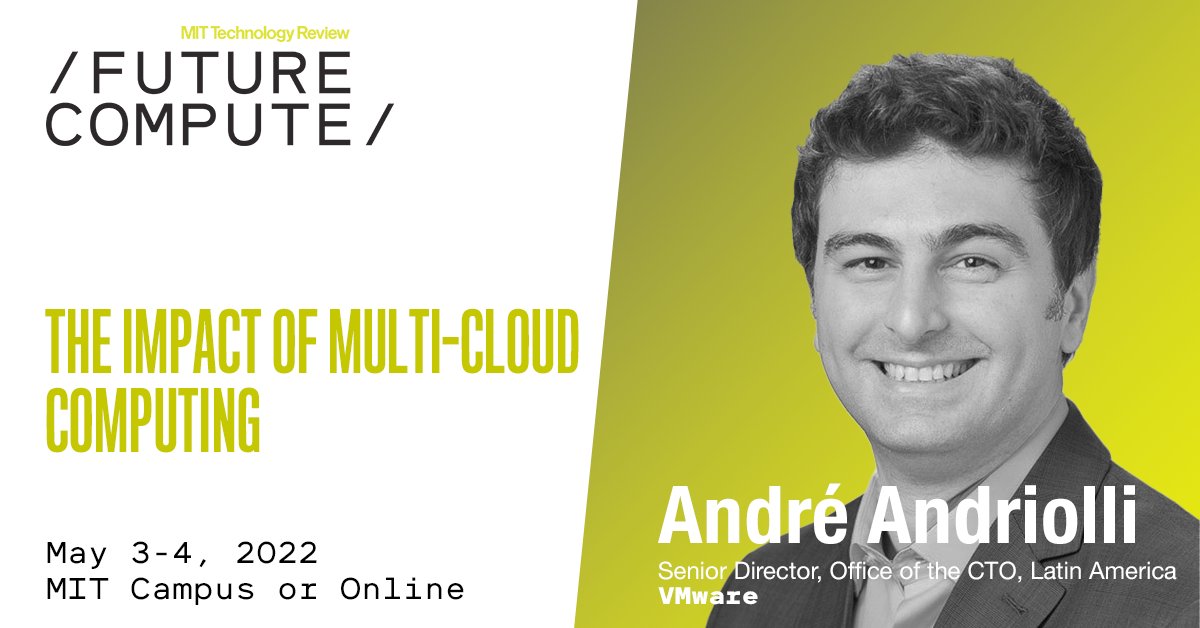
Examine how to overclock AI with @tenstorrent as the nature of workloads is shifting. General purpose GPUs are being replaced by application specific chips optimized to compute the AI workloads that are driving business transformation. #FutureCompute 

.@brianbehlendorf will cover the power of open source. Dive into the mechanics of what makes open source work, and in particular what makes open-source secure. #FutureCompute 

More devices, creating more data, can bottleneck the cloud and slow application response times. At the edge, milliseconds matter. @RobertBlumofe will cover how to make the right architectural decisions to deliver the response times necessary for low latency apps. #FutureCompute 

@jaygambetta is on the quest for a thousand qubits with Eagle, an industry leading 127-qubit processor from IBM. He'll explore this advancement at #FutureCompute. 
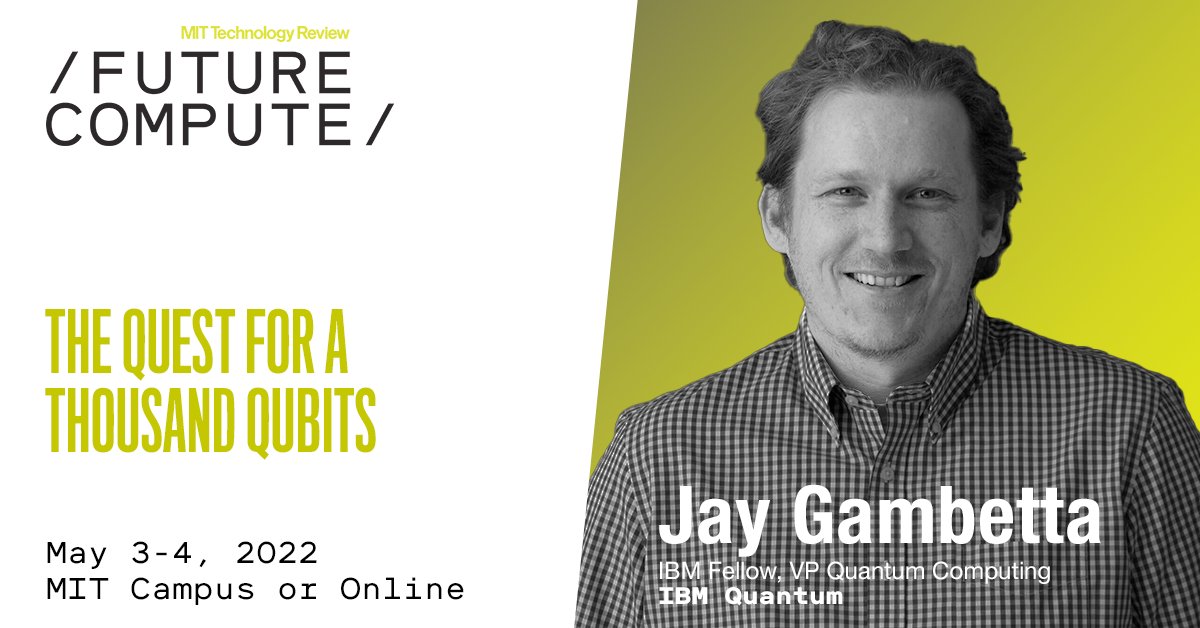
@cisagov was created to work across public and private sectors, challenging traditional ways of doing business. Sharing insights and capabilities, we'll explore this cyber-strategy to unite against a common digital adversary with Brian Gattoni. #FutureCompute 
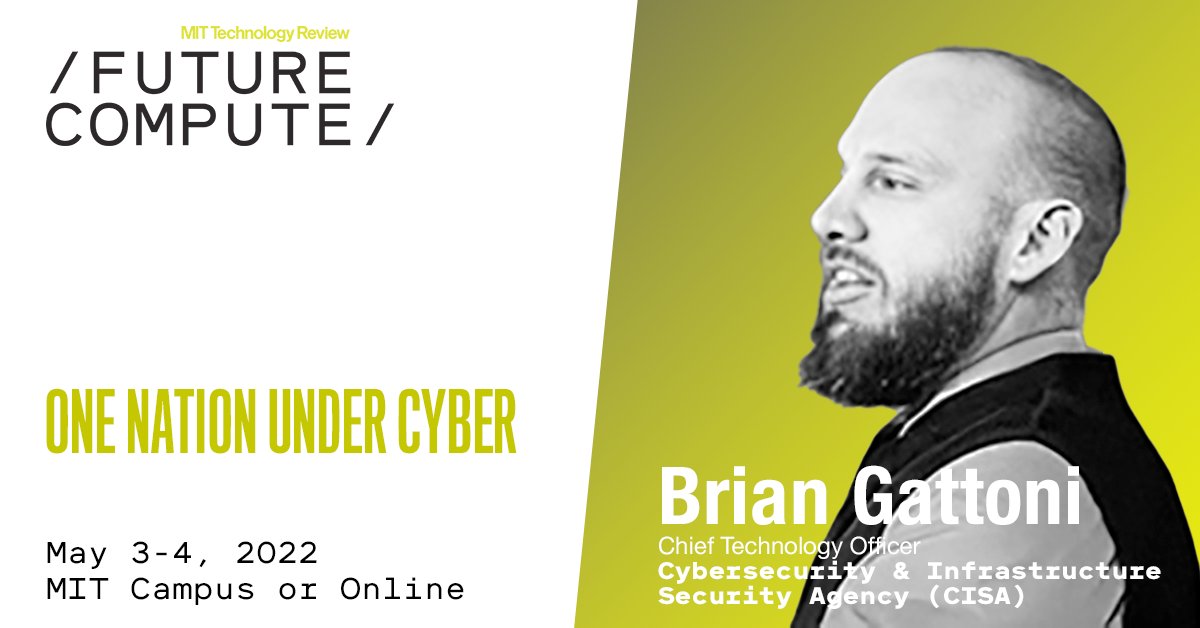
Those that outsource their IT operations to cloud service providers gain not only the elasticity of the cloud, but the protection of digital guardians. Get insight into the strategies used by the first line of defense, and learn pitfalls to avoid with @royalhansen. #FutureCompute 
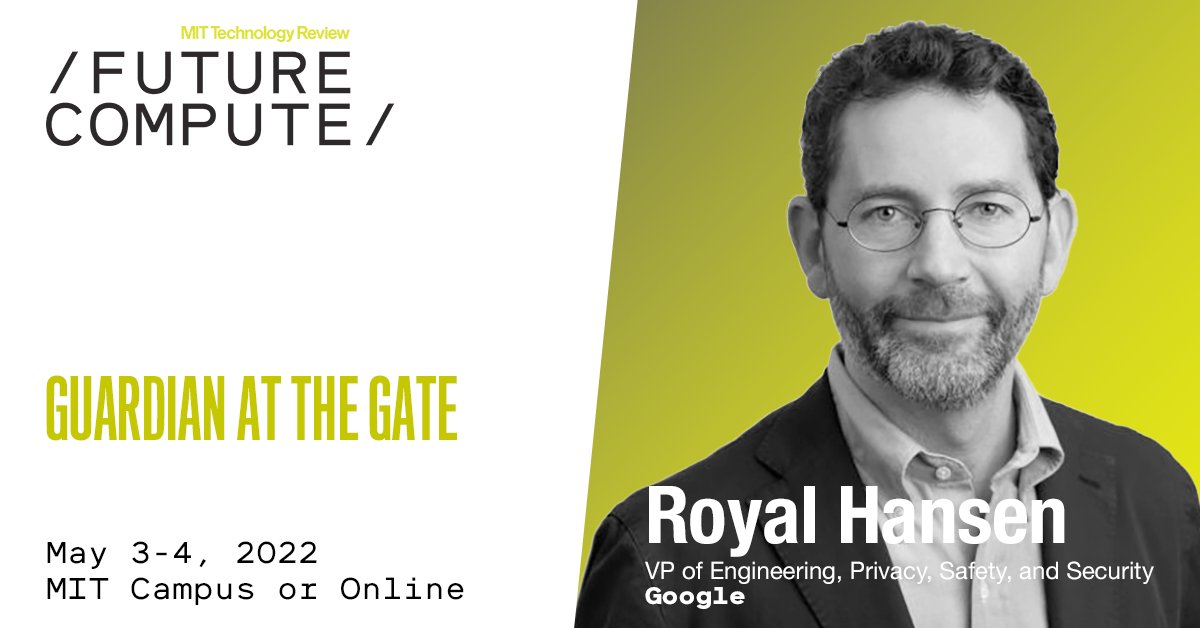
SandboxAQ is focusing on the convergence of AI and Quantum to drive key objectives such as drug development acceleration. How can CPUs, GPUs, and Quantum Processing Units (QPUs) work together to support advanced computing needs? @jackhidary will share. #FutureCompute 

Examine how to overclock AI with @jimkxa @tenstorrent as the nature of workloads is shifting. General purpose GPUs are being replaced by application specific chips optimized to compute the AI workloads that are driving business transformation. #FutureCompute 

We'll put the latest attack strategies used by the global hacking community under a microscope with @likethecoins of @redcanary in order to strengthen our defenses. #FutureCompute 

We take for granted the immense processing power of CPUs & GPUs running our computers, phones, cars & planes. Mark Papermaster of @AMD will tell the story of hardware innovation & the architecture in place required for continuous improvement & exponential growth. #FutureCompute 

Second Life is the original Metaverse. Discover the vision behind Second Life, and what 20 years of running a Metaverse can teach us about the opportunities and challenges of the Metaverse with @philiprosedale. #FutureCompute 
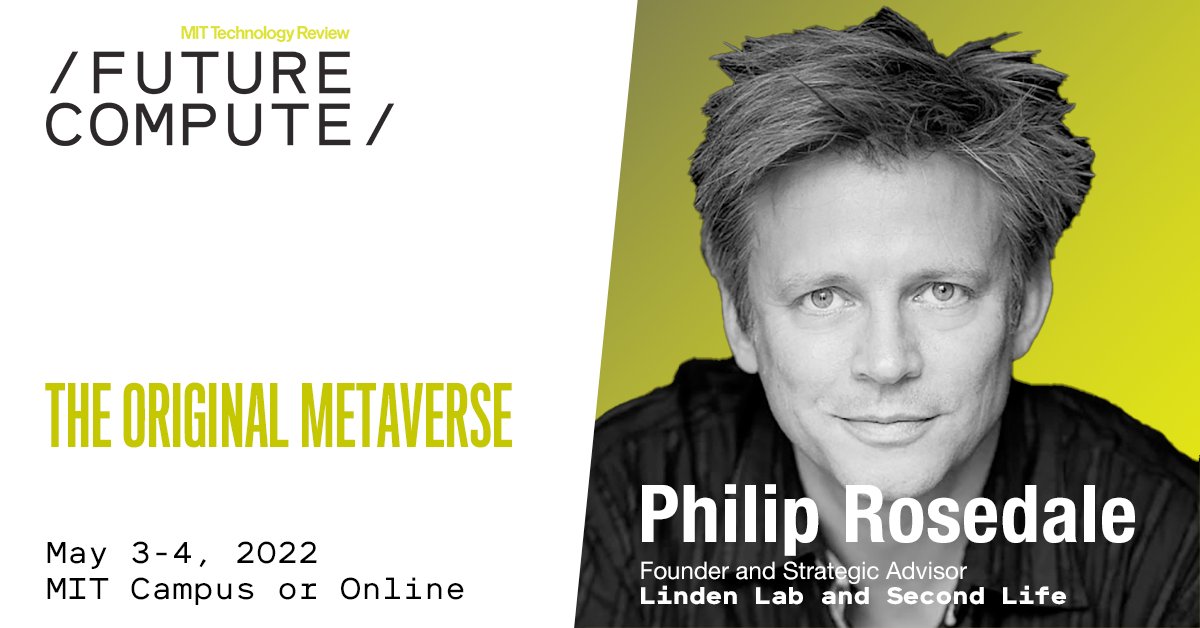
We examine the gaps between where robots are today and the promise of pervasive robots in this wide-ranging conversation with Daniela Rus, the leader of @MIT_CSAIL. #FutureCompute 

The minimum viable product for a Metaverse is an experience that is immersive and social. Daily, @Roblox provides just that experience to its 50 million users. We examine this immersive world, focusing on its community, economy, and safeguards with @sturman. #FutureCompute 

Data is the most under valued aspect of AI. Learn why refocusing efforts from algorithm optimization to data quality can lead to the greatest improvements in AI decision making with @melisatokmak of @scale_AI. #FutureCompute 

We'll be covering the reality of the Metaverse and how it's already here with @amywebb. #FutureCompute 

Researchers in all areas have been constrained by the limitations of classical computing technology. Get an overview of the key limitations of classical computing and a greater understanding of the impact of quantum computers from Steve Brierley of @RiverLane_io. #FutureCompute 
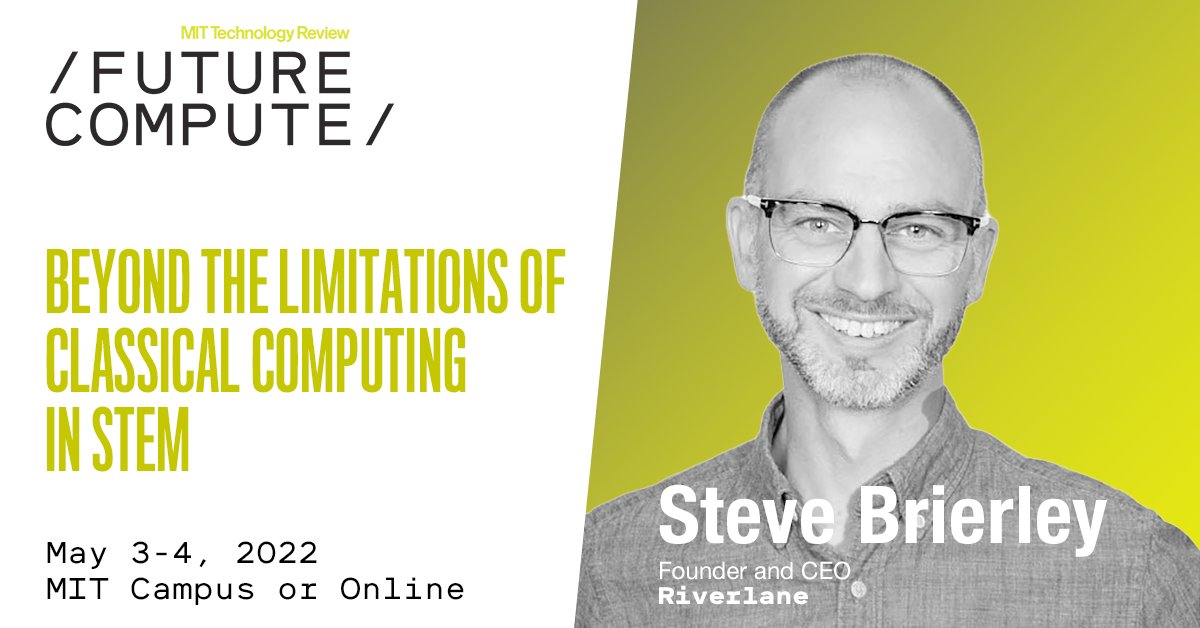
@darwinai's @sheldonfff will walk us through the intelligent edge and what's around the corner of the edge. #FutureCompute 
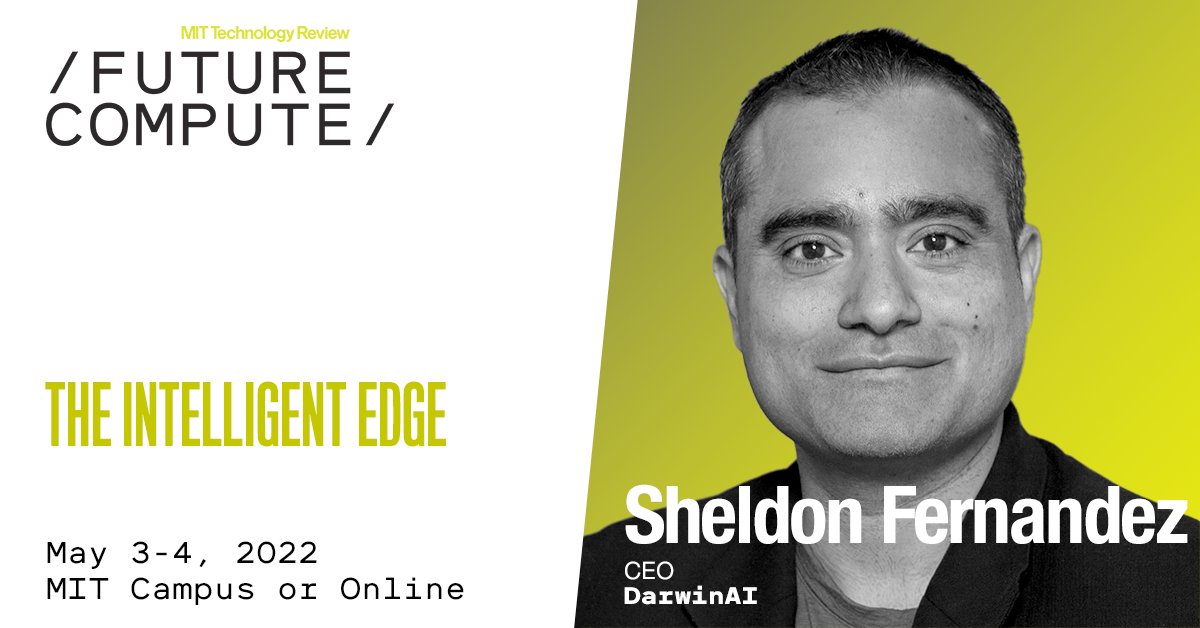
The algorithm is the intelligence in AI. These models with billions of parameters transform data into decisions. Get a private peek into one of the leading AI labs with @JohannesGehrke to understand the latest achievements, challenges, and future state of AI. #FutureCompute 

@jeffreygrover focuses on software infrastructure and building extensible calibration, control, and metrology protocols for multi-qubit systems. In an editorial spotlight at #FutureCompute, he'll tell us more about quantum timelines. 

Industries world-wide have been hit by chip shortages. It’s time to rethink how business adapts to bumps and gaps in the global supply chain. Learn organization wide creative strategies to cope with silicon supply disruptions with Jessica Kelly of @Niglobal. #FutureCompute 

The promise of the AI Revolution is to mine immense volumes of data. So far the benefits have been seen only by the few organizations with the resources to support data-science and machine learning teams. @craig_wisneski of @AkkioHQ will talk about AI for everyone. #FutureCompute 
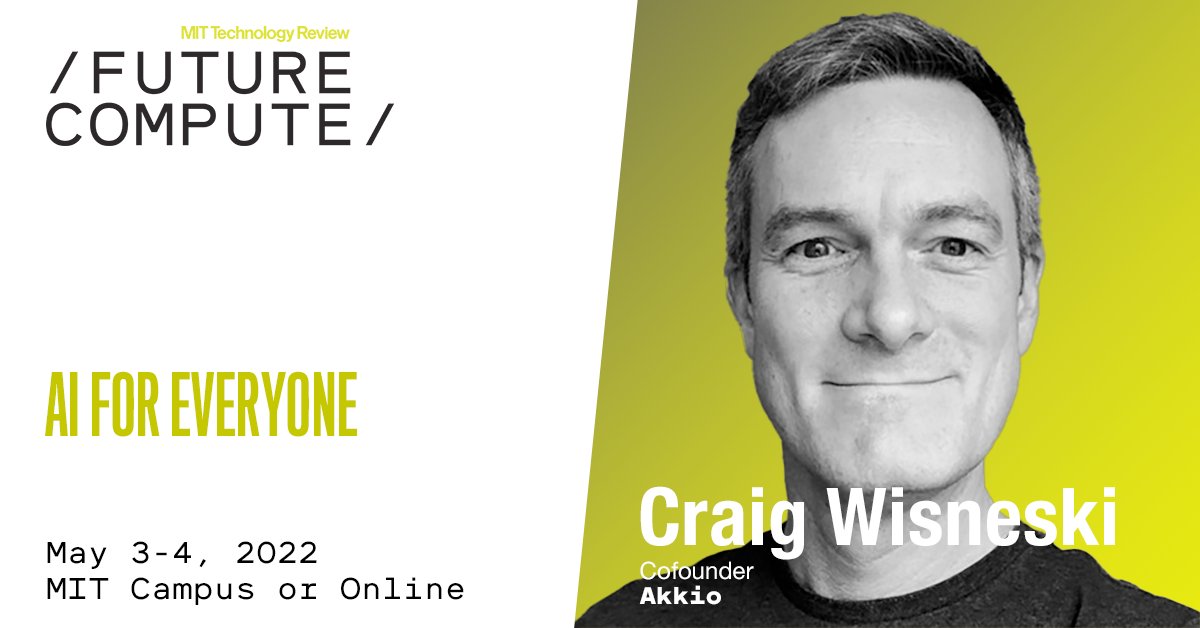
Learn what’s driving the new wave of micro- and nano-systems as well as the benefits and tradeoffs of enabling power transistors to operate at higher power densities and efficiencies with Professor Tomás Palacios @MITEECS @mit_nano. #FutureCompute 
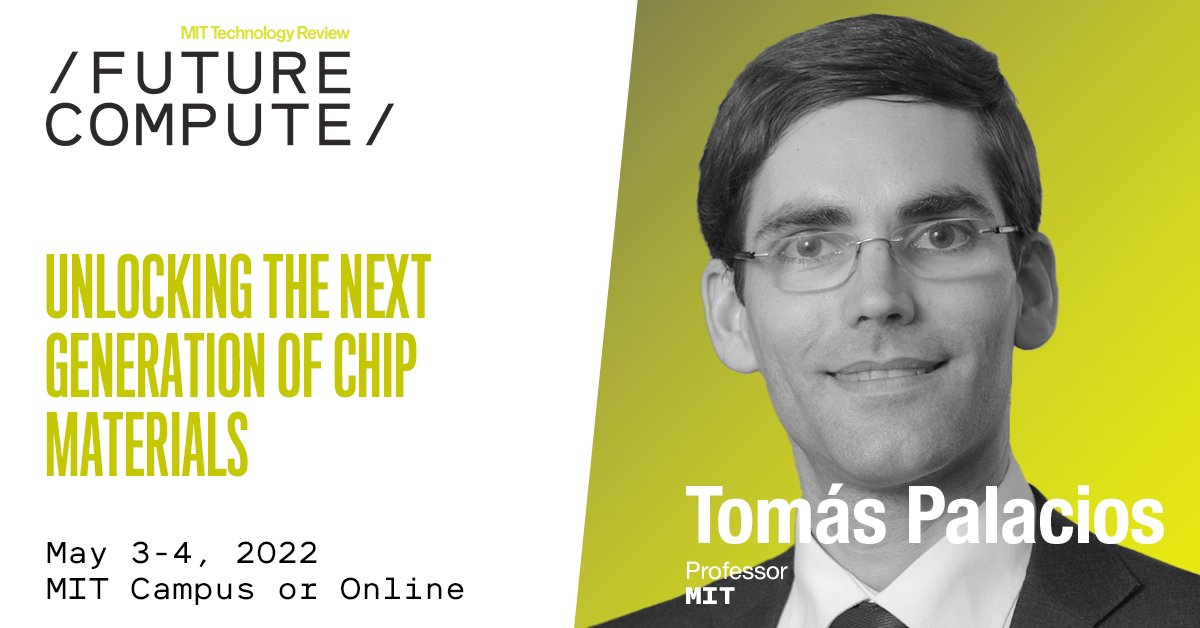
The Seoul Metropolitan Government has created a digital city twin which offers a virtual communication ecosystem for economic, cultural, tourism, educational, and civic services. Learn how this project provides services overcoming real-world restrictions. #FutureCompute 
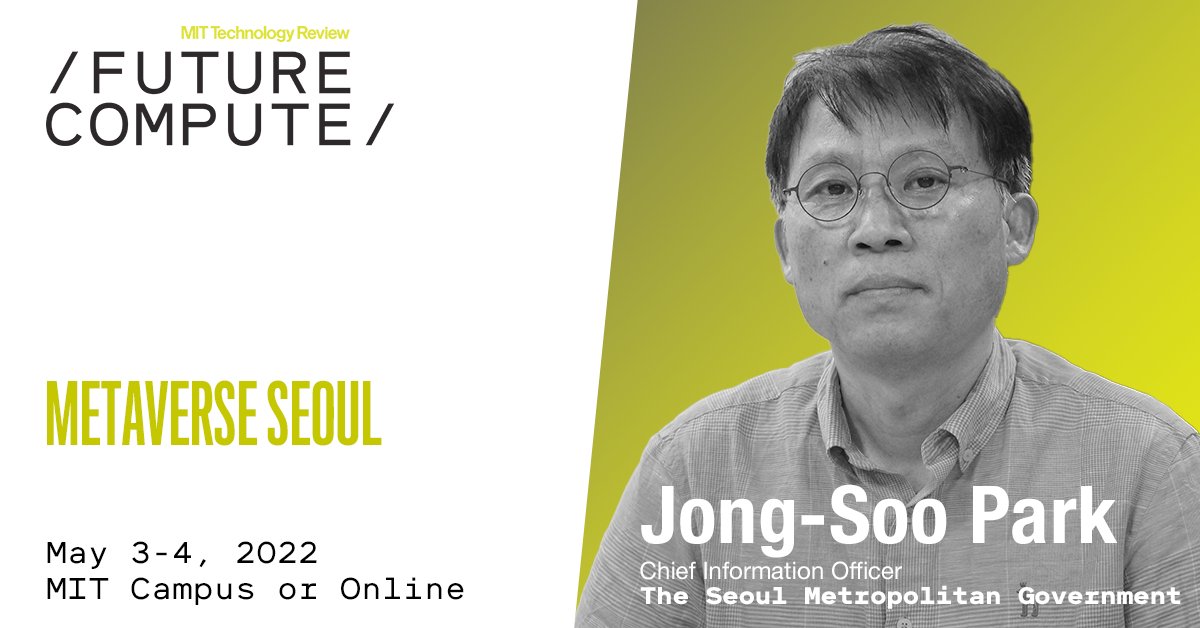
We'll dive into the technology of nuclear-spin qubits and the possibilities they offer for scalable, commercial quantum computing with @denruf. #FutureCompute 
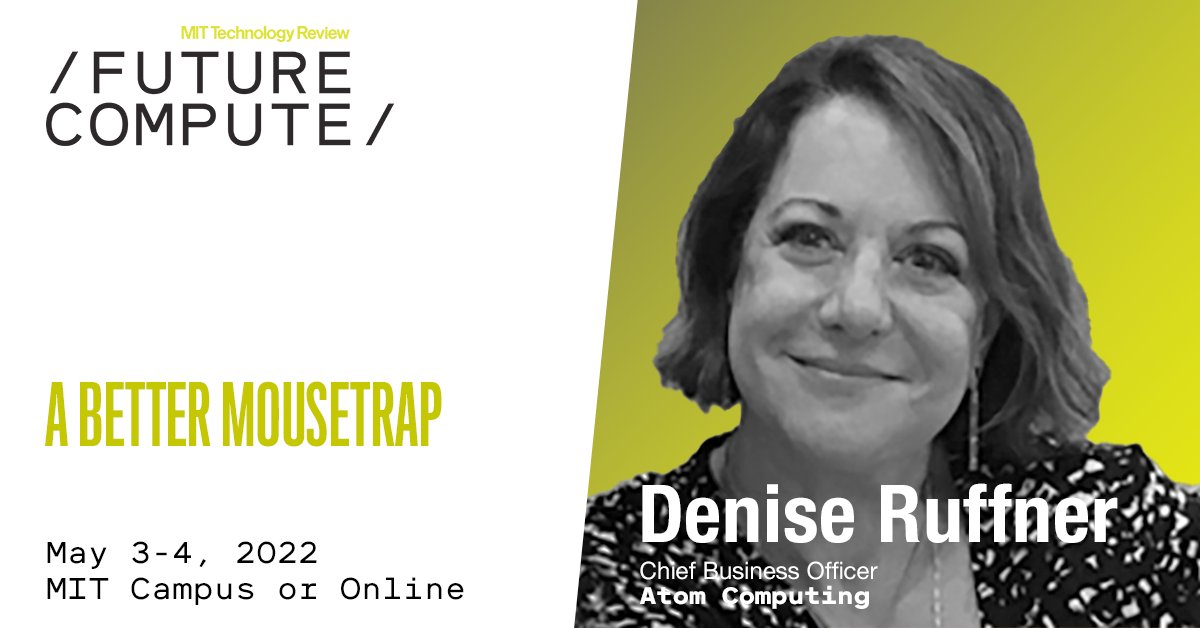
In the edge world, self-driving cars steal all the limelight. But there are unsung use cases like building temperature control, where the edge can save millions. Uncover the unglamorous edge use cases that provide impactful ROI with Manish Sharma of @honeywell. #FutureCompute 

Motion control devices like those used in industrial machinery, space technology, and healthcare applications are some of the original edge devices we now take for granted. Hear from George Small, an edge pioneer about what’s around the corner for the edge. #FutureCompute 

Join us on @MIT’s campus or virtually. Register for Future Compute, our signature computing conference here. #FutureCompute trib.al/DexZPbf
If you register, you’ll also receive a subscription to @techreview and access to all of our exclusive journalism. #FutureCompute forms.technologyreview.com/subscriptions/…
• • •
Missing some Tweet in this thread? You can try to
force a refresh







